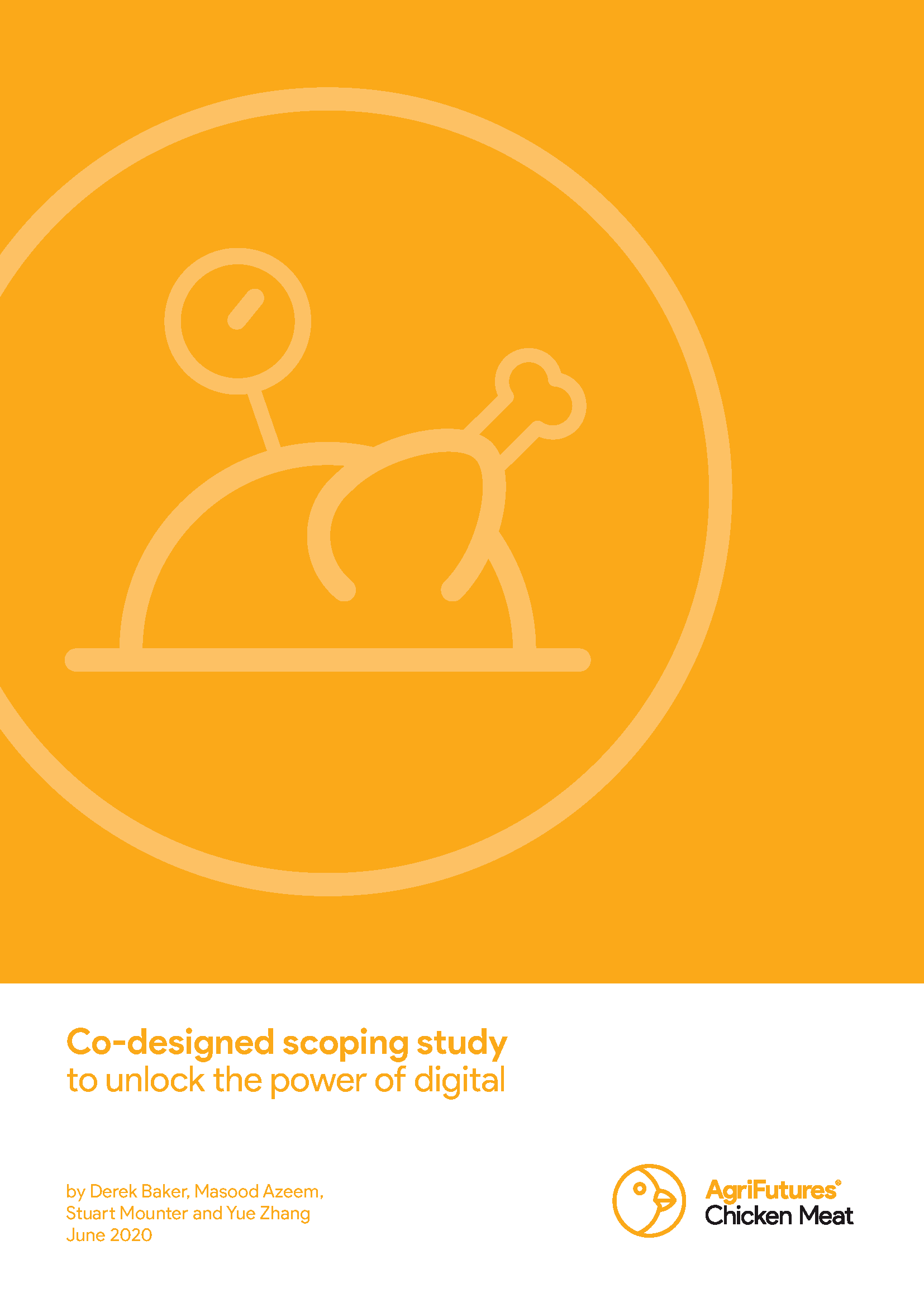AgriFutures Chicken Meat Program RD&E Snapshot
As we head into a new research, development and extension (RD&E) period for the Australian chicken meat industry (2022–2027), it is timely to reflect on...
 CHICKEN MEAT
CHICKEN MEAT 
90 pages
Published: 11 Aug 2022
Author(s): Derek Baker, Masood Azeem, Stuart Mounter, Yue Zhang
ISBN: 978-1-76053-294-9
Download report PDF
DownloadThe digital transformation of agriculture and food offers significant benefits to Australia’s agribusiness economy, consumers, interest groups and communities. Uptake of digital technologies has been the subject of much recent research, and the focus is now shifting to factors enabling and invigorating both uptake and the more far-reaching process of digital transformation by firms and industries. The report Co-designed scoping study to unlock the power of digital presents results from research conducted jointly by the University of New England and the Food Agility CRC that targets these processes in the Australian chicken meat industry. This research was commissioned as part of Agrifutures Australia’s Chicken Meat Program. Its scoping study nature assembles and synthesises information from a variety of sources, to deliver a strategy and roadmap for change.
The industry has sustained growth and productivity gains over the past several decades, against the backdrop of falling prices and rising demand, unprecendented consolidation at all industrial stages, the challenges of regulation, and a demanding social license. Across these fronts, digital transformation offers some answers, and poses some questions. Its form has varied across many industries and its progress has been difficult to measure and explain. Projections for the chicken meat industry (i.e. the ‘power’ of digital) have concentrated on technologies’ technical impacts rather than their influence on business models and associated digital transformation (‘unlocking’ the power). This research reports on developments on both fronts. The work has been conducted in partnership with chicken meat processing firms, including consultations and an industry workshop, and mapping of industry aspirations to technologies, their implementation, and organisational change for their most effective use.
A major conclusion drawn is that stakeholders in the chicken meat industry are well aware of potential gains from digital transformation; indeed many processing firms and producers are actively pursuing such change. They are doing this for a variety of reasons and from a variety of starting points. Another is that institutional and competitive conditions in the Australian chicken meat industry do not lend themselves to sharing of data; data governance’s legal basis is one problem but trust along the supply chain is also a significant barrier to change. The report identifies a number of possible delivery mechanisms for digital services, and such barriers in a number of ways also constrain these developments. Producers and processing firms acknowedge the lack of decision support tools suited to analysis of investment and organisational change to achieve digital transformation. Processing firms’ skillsets are a source of pride, but firms acknowledge that digital-related skills do constrain progress. Improved skills are not, however, a solution in themselves, as they require accompanying management change, particularly around decision making and automation. Regarding the development of a digital service industry for chicken meat, contact points are lacking among business analytics, data and communications provision, and technical chicken meat production and delivery.
The report’s recommendations provide a road map for change and an associated set of proposed strategic steps toward achieving the outcomes identified by industry. The strategies allocate proposed action among producers, processors and various levels of government. They also identify actions for the industry as a whole, and funding mechanisms. Many of these steps use existing initiatives and resources, and all recognise firms’ unique starting points and aspirations.